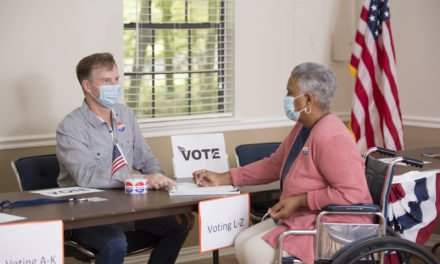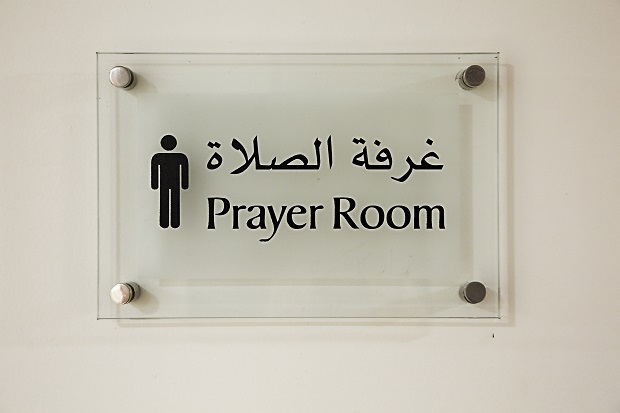
Yesterday, I read a post written by diversity and inclusion thought-leader and friend of The Winters Group, Howard Ross, that posed this very question. My short answer to this question is: When we want to.
Here’s my long answer, though…
We boycott when we want to be heard, feel seen, see change, feel powerful, be acknowledged and affirmed. And that should be okay—not questioned.
In some ways, I think I may have been triggered by the question posed in the post. My ‘whole self,’ Brittany, the black woman, black mother, black millennial, black socioeconomically advantaged, cisgendered & heterosexual privileged advocate, couldn’t help but (for lack of better words) feel some type of way. I consider myself an advocate—I don’t take my access, influence, and platform lightly. That said, I try to be intentional in centering and prioritizing those most marginalized in my approach and orientation to this work. Certainly, I am not perfect, but I am learning. I do not believe I have all the answers, but I am critical. I share this as a preface and broader context into why I will never be comfortable with narratives that center and prioritize corporations and those ‘otherwise privileged,’ over the ‘least of these.’
From my point of view, taking a formal stance against how [marginalized] communities express their resistance and power is privileged. I think insinuating that their response is “premature” or “emotional” is undermining and dismissive. I think assuming that someone who boycotts [or engages in any form of resistance] doesn’t want to engage in dialogue is flawed. I do not believe people resist because they don’t want to have the conversations. I believe they resist [or boycott] when they don’t feel heard, when they feel ignored or as though they won’t have equal footing in the conversation. Resistance [in this case, boycotting] is one example of the power in the collective.
We boycott when we want to be heard, feel seen, see change, feel powerful, be acknowledged and affirmed. And that should be okay—not questioned. Click To TweetI observed similar pushback in the mainstream when Monique, a black woman and comedian, called for a boycott of Netflix in an effort to broaden awareness of how race and gender biases impact pay equity. Many dismissed her concerns as unreasonable, insulted her character, challenged her credentials and immediately came to Netflix’ defense. Like, why?
At the end of the day, Starbucks, Netflix [or any corporation for that matter] do not need our advocacy. They don’t need to be centered or ‘saved.’ We don’t need to run down their long lists of good deeds and strides towards equity and inclusion, in direct response to [marginalized] communities affirming their power and speaking their truth. It is reminiscent of the “But, I’m one of the good guys” narratives we all too often hear in conversations that critique the broader systemic effects of sexism and racism. Those rebuts are unnecessary, they are distractions and only seek to serve and protect the organizations, those in power, the dominant narrative.
I am not boycotting Starbucks, but I will stand for and support those who choose to. As a matter of fact, many of those who are, have encouraged people to replace Starbucks with black owned cafes/coffee shops (like Dovecote Café in Baltimore, MD, which is where I am as I write this post). Who are we to say that its wrong? Who are we to call it emotional or premature?
That said, it is very possible to support Starbucks’ choices since the incident AND also affirm the choices of those boycotting. There is room for both. I mean, if Starbucks can ‘work hard at diversity’ AND still profit from the prison-industrial complex (not going there, but going there), then there’s clearly room for complexity and nuance, here.
Is it possible to support Starbucks' choices since the incident AND also affirm the choices of those boycotting? #Starbucks Click To Tweet


















Dear Britany,
Thanks so much for taking the time to read my piece and comment on it. Good people with similar intentions can disagree on strategy. In fact, ironically, in 2012, your company’s founder, Mary-Francis and I had a similar interaction in regard to the Chik-Fil-A boycott when I was the one arguing for collective action and she was taking another point of view.
To be clear, my answer to the posed question, “When do we boycott?” also affirms the right of people to boycott if that’s what they choose. As I said in the blog, “I certainly am not claiming to have the answer to this dilemma, and I respect the right of anybody to choose where they buy their coffee, or anything else.” I also made it very clear that I honored the emotional impact of the incident, saying “The pain and anger resulting from this instance was completely understandable and justified. How many times over the past few years have we watched videos of African Americans being treated unjustly, brutally, and even mortally? The repeated nature of these incidents, and the dark stain of American racism that they consistently reveal, is as worthy of outrage as anything I can think of.”
My comments were also not in any way designed to be “advocacy” for Starbucks, who, as you so aptly noted, are perfectly able to take care of themselves. Rather, they come from the perspective of someone who was trained in community organizing and protest, and has worked actively for social justice for more than half a century. They were intended to offer an opinion about what might be the most effective strategy. It is simply my opinion that a boycott would not be the most effective political action at this time. That point of view in no way dismisses those who choose to boycott. I completely support the right of others who disagree with my point of view to act in accordance with their principles.
As for your statement that “From my point of view, taking a formal stance against how [marginalized] communities express their resistance and power is privileged”, I can’t imagine that you are suggesting that my identity as a Jewish-White-Cis-Hetero man should prevent me from expressing my point of view about the strategic efficacy of a particular form of public protest, anymore than it would be reasonable to suggest that Mary-Francis should not have had the right to express her point of view about the Chik-Fil-A incident because of some sense “hetero-privilege.” I believe that we all have a right and responsibility to speak out when we see injustice and to support the best ways to address that injustice.
As Mary-Francis so beautifully wrote in her piece about Chik-Fil-A, “If we are truly culturally competent, we can see things from other perspectives without judging those perspectives.” I greatly appreciate your willingness to share your perspective and would welcome the opportunity to dialogue about it with you.
One love,
Howard